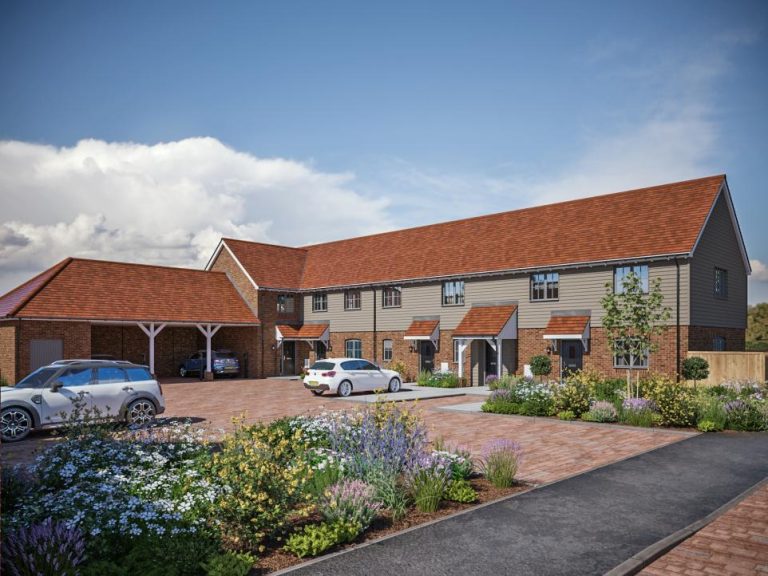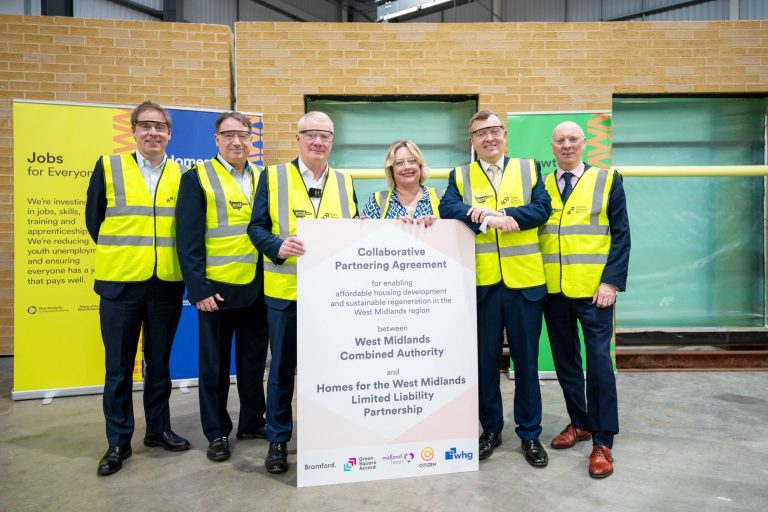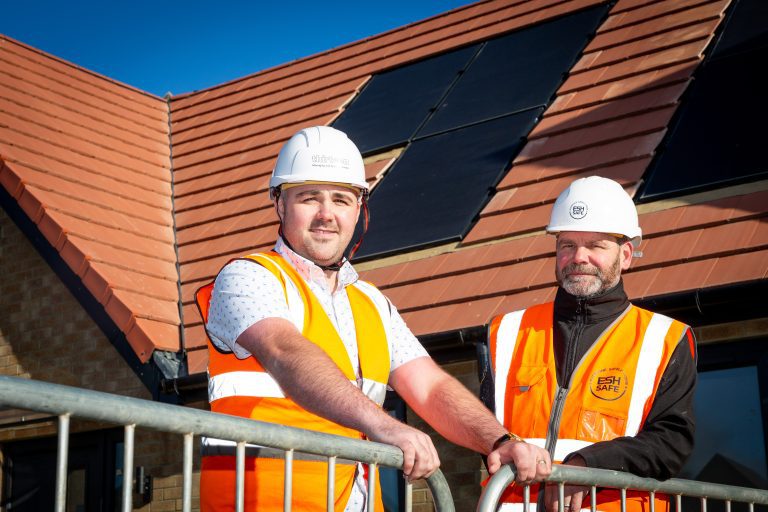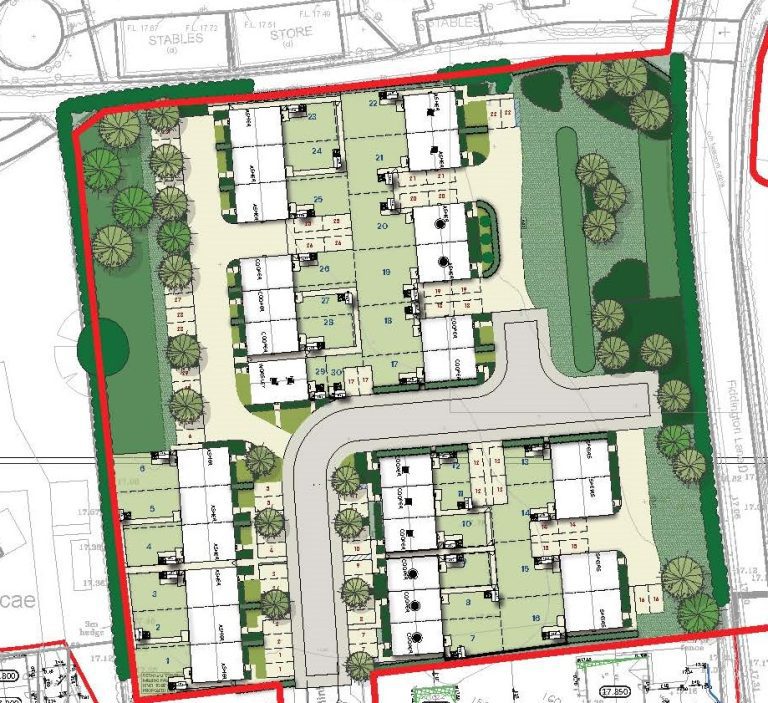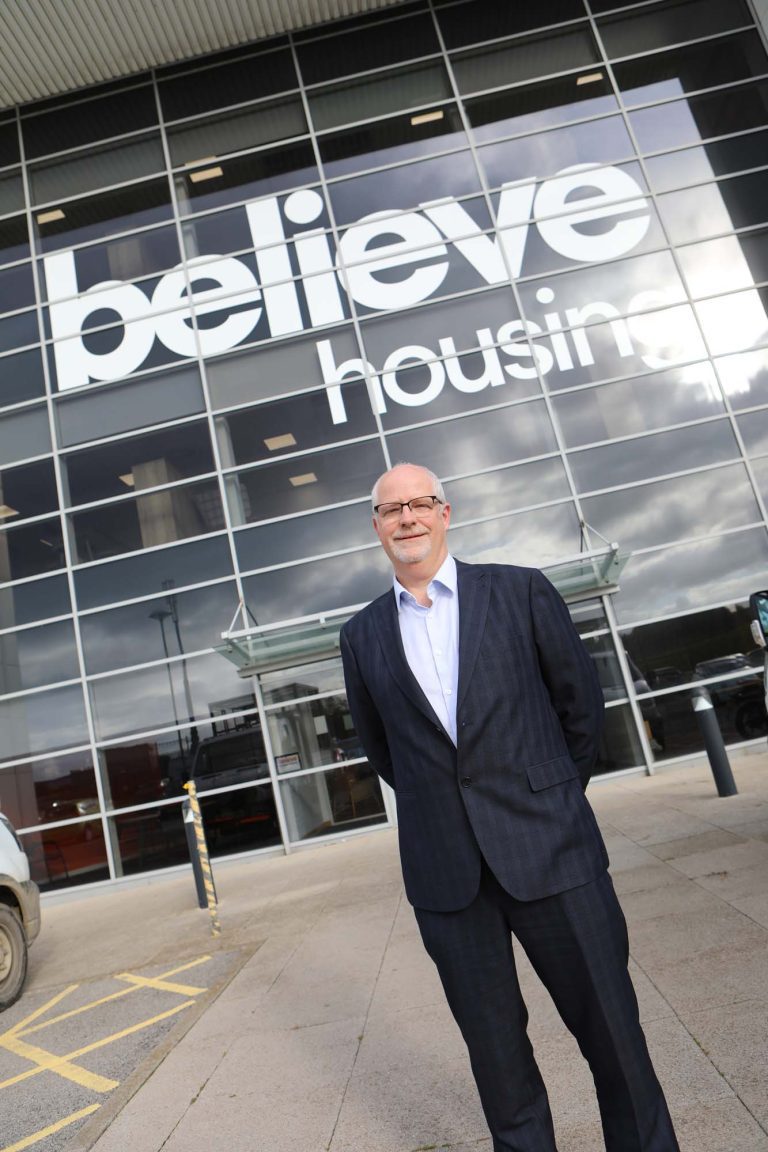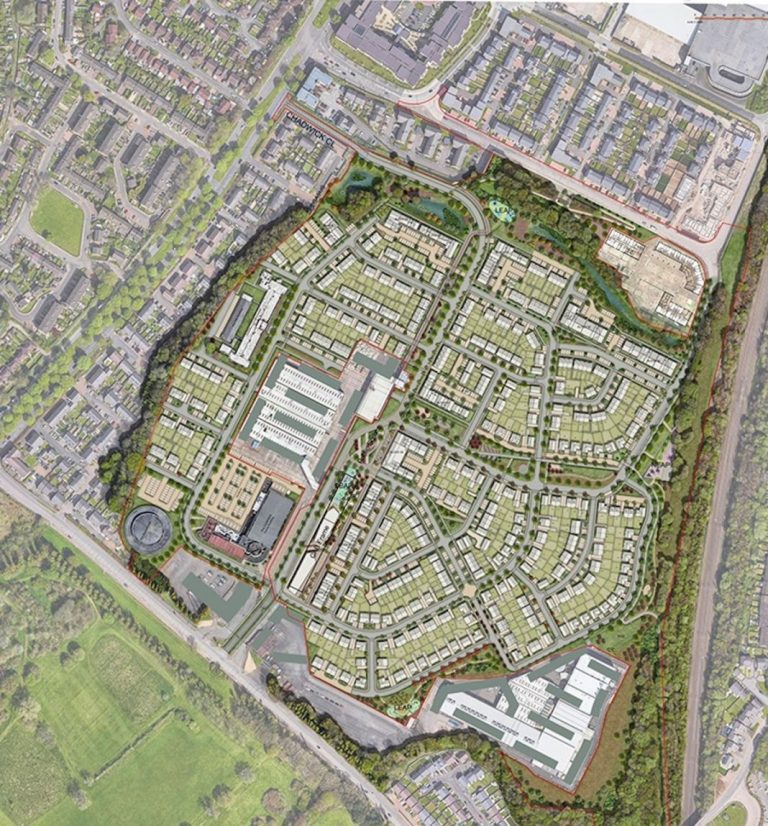Bromford has entered a new partnership with the West Midlands Combined Authority (WMCA), Citizen Housing, Green Square Accord, Midland Heart, and whg, to address the growing need for affordable homes in the West Midlands. The Homes for the West Midlands LLP partnership represent a dedicated effort to accelerate housing delivery, increase affordability, and support sustainable community growth across the region. Bromford and its partners will work closely with WMCA to identify strategic sites and opportunities to develop genuinely affordable homes that meet the needs of local people. For Bromford, this partnership aligns with its mission to build strong communities and provide safe, affordable housing. On 18 October, Chief Executive Robert Nettleton joined fellow CEOs and the Mayor of the West Midlands, Richard Parker, to celebrate the launch of the new partnership. The event took place at LoCal Homes, an award-winning offsite housing manufacturing facility in Walsall. Robert Nettleton, CEO of Bromford, said “ This marks a significant step forward in tackling the housing challenges our region faces. By collaborating with WMCA and fellow housing associations, we’re able to take a more unified approach to identifying sites, accelerating the development of affordable homes, and addressing specific local needs with greater impact. This partnership offers a unique platform to pool our knowledge, resources, and strategic insights to deliver affordable homes that truly meet the needs of our communities.” Highlighted in Bromford’s recent mid-year trading update1, with turnover rising to £167 million and significant investments in both new developments and existing homes, Bromford is well-positioned to support the affordable housing vision of this collaboration. Managed by consultancy firm Integer Advisory Ltd, the partnership is structured to focus on effective, results-driven development, including adopting innovative building techniques like modern methods of construction (MMC) and modular housing. These homes are constructed in factory-controlled environments and then assembled on-site, enabling the delivery of energy-efficient, low-carbon housing more quickly and at lower costs. The first project for the partnership will be a 100% affordable housing development on a former industrial site in the Black Country, reflecting the groups dedication to repurposing land in a way that supports community needs and sustainable growth. The partnership also provides a solid framework for developing and implementing the region’s Affordable Homes Programme, which will be devolved from Homes England to the WMCA in 2026. This transition will give Bromford and its partners greater influence in shaping housing priorities, ensuring that affordable housing projects are well-suited to meet the demand across the West Midlands. At present, 64,000 people are on the region’s housing waiting list, with over 6,500 households, including 13,000 children, residing in temporary accommodation. West Midlands Mayor Richard Parker has made housing one of his top priorities, setting a goal of 2,000 social rent homes per year until 2028 to reach a total of 20,000 new affordable homes by the end of the decade. Bromford is ready to support this vision, bringing both its expertise and commitment to sustainable construction practices to the forefront of regional development efforts. As the country’s biggest builder of social rent homes2, Bromford is already committed to expanding affordable housing options. This new partnership strengthens Bromford’s ability to deliver affordable homes at scale across the West Midlands, supporting community needs and sustainable growth. Bromford believes this collaborative approach will provide a robust response to the housing crisis, allowing resources and expertise to be pooled for maximum impact. This united effort will accelerate the delivery of high-quality, affordable homes across the West Midlands and enable Bromford to continue building homes and communities where people can thrive. Building, Design & Construction Magazine | The Choice of Industry Professionals
